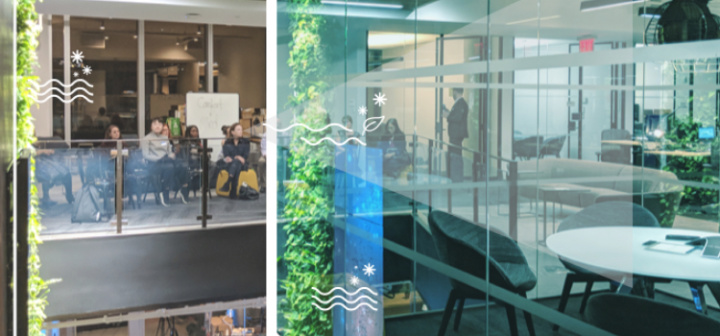Event
Recap
Sustainable Design Forum: Grading the Ratings - Well Rated
Event Link
Tagged as: Attending New York , NY
By Varis Niwatsakul - 17th May, 2018

A Living Case Study for Health and Well-being
The built environment impacts every aspect of our daily lives, from our productivity at work to our sleep at night. We spend 90% or more of our time indoors and up to 98% during colder months. This highlights how important the building is to the health and wellness of occupants and the need for measures like The WELL Building Standard.
As part of its Sustainable Design Forum, IIDA NY hosted this event in the new Delos office. The office was designed to demonstrate the seven key concepts (air, water, nourishment, light, fitness, comfort, and mind) and serve as a case study. Some of the key features of the Delos offices include; a hospitality and residential touch and feel, a circadian lighting system that mimics the changing hues of the sun throughout the day, adaptable spaces for employees’ ergonomics, a beautifully designed cafe that is fully stocked with snacks that nudge occupants towards healthy eating, a digital display that gamifies fitness and encourages people to use staircases, and biophilic smart green walls that are not only visually pleasant, but double as an air purifier.
What distinguishes the WELL Building Standard from other building accreditations is that it focuses on occupants’ health and well-being. This occupant-centric ethos is reflected not only in how the standard was developed but also how the rating is granted to candidates. The WELL rating is performance-verified. In order for a candidate to be granted with any level of accreditation, there is an on-site assessment performed by a third party. WELL joins a growing list of building certifications like FitWel that aim to prioritize occupant well-being.
IIDA NY will host its next installment of the Sustainable Design Forum in April with a look at LEED v4 and LBC, and complete the series in the fall.

